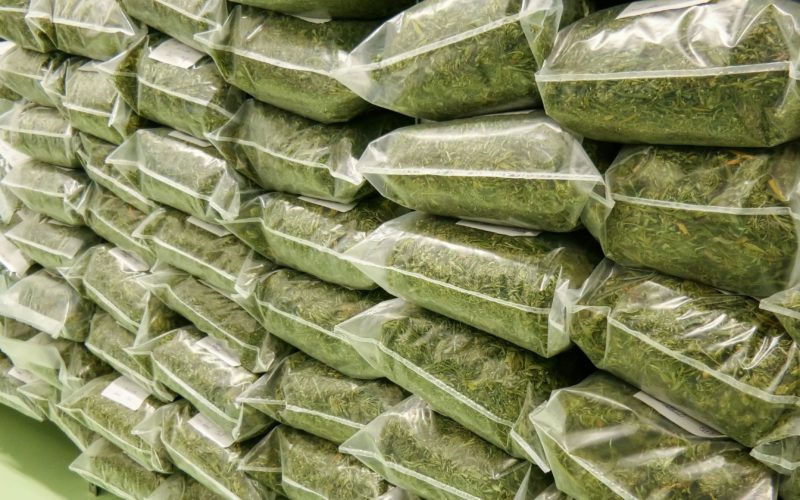Business
Canada Border Agency Seizes Almost 2,000 Pounds of Illegal Cannabis Export

Recent seizures by the Canada Border Services Agency show that illegal export of cannabis is still thriving.
According to a press release from the Canada Border Services Agency (CBSA) on Aug. 24, the agency announced that it recently seized 592 kilograms (approximately 1,305 pounds) of cannabis in a recent move.
Using a CBSA detector dog in addition to “a wide range of detection tools and technology,” law enforcement was led to 1,036 vacuum-sealed bags of “suspected cannabis” bound for export on May 26. In addition to the first seizure, another was conducted on June 26 which involved 300 kilograms (661 pounds) contained in 100 bags—netting 892 kilograms (almost 2,000 pounds) of cannabis in total between the two seizures.
“Regardless of the mode of entry (air, marine, land, rail), it is illegal to bring cannabis (and cannabis products) into or out of Canada without a valid Health Canada permit or exemption,” the agency wrote in a press release. “CBSA officers have the authority to examine in-bound shipments as well as goods for export. Personal, mail, courier, and commercial shipments are subject to the Customs Act and may be examined for prohibited goods, including cannabis and cannabis products. Avoid seizures, fines or arrest: Don’t bring it into Canada. Don’t take it out of Canada.”
Rahul Coelho, CBSA A/Director, Metro Vancouver District, Pacific Region explained that exportation is only legal for those who have obtained the proper certification. “Although cannabis has been legalized and regulated in Canada, it remains illegal to import or export cannabis and cannabis products without a valid permit or exemption issued by the Government of Canada,” Coelho said. “These significant seizures demonstrate our commitment to intercepting illegal narcotics—at import and export—and contribute directly to disrupting criminal organization activity.”
According to the Canada Cannabis Act, only licensed parties may import or export cannabis in Canada, and “only for medical or scientific purposes.” All individual shipments require a permit, and permit applications are approved on a case-by-case basis.
Cannabis exports for Canada were valued at $53 million in 2020, which according to Prohibition Partners was a 229% increase from 2019 export data. Between 2018-2020, Canada exported 30,000 kilograms (approximately 66,000 pounds) of dried medical cannabis, as well as 35,500 liters (more than 9,000 pounds) of cannabis oil overseas.
Many other countries have legalized cannabis for import and export. Israel, one of the top countries in the world for cannabis research, approved cannabis exportation in May 2020. “This is a significant step for exporters and the Israeli industry, which will enable both expansion of export opportunities as well as rising employment … in the field,” said former Israel Economy Minister Eli Cohen about the decision.
Last year in July, Colombia legalized medical cannabis export as well, specifically for flower. “Colombia starts to play big, and with this decree we are putting ourselves at the forefront in terms of regulatory competitiveness, at least in Latin America and the Caribbean,” said Colombian President Ivan Duque. “We are opening the space to do much more in cosmetics … [including] food and beverages and even textiles.” Previously, Colombia approved legislation in 2016 to regulate cannabis production and sales, but exports remained banned until 2021.
A recent study revealed that in Canada, cannabis flower is still the most popular consumption method (according to data collected between 2018-2020). “The findings highlight the rapidly evolving nature of the cannabis product market, including notable shifts in the types of cannabis products used by consumers. … Although dried flower continues to dominate the market, it has begun declining with a notable shift towards increasing popularity of processed cannabis products,” researchers wrote about their findings. After flower, cannabis edibles and vape oils were the second and third most popular during the specified time frame.